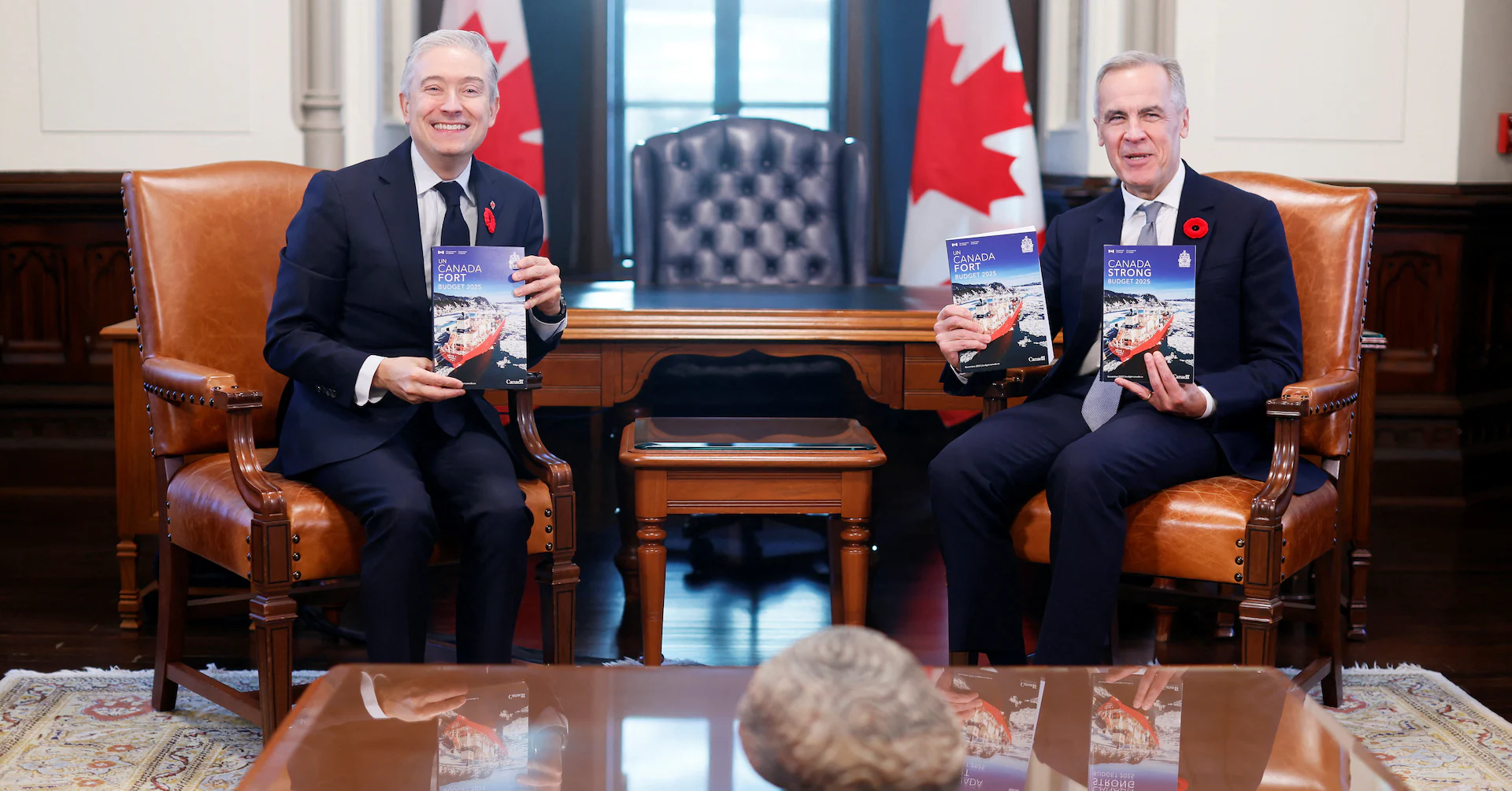Copyright Reuters

OTTAWA, Nov 4 (Reuters) - The Canadian government released its budget, the first by Prime Minister Mark Carney, on Tuesday. Here are some of the key measures it proposes. INVESTMENTS Over the next five years the government is proposing a total of C$280 billion in investments - C$115 billion in infrastructure, C$110 billion in productivity and competitiveness, C$30 billion in defense and security and C$25 billion in housing. Sign up here. INCREASED DEFENSE SPENDING The government plans to spend C$81.8 billion over five years to boost recruitment, repair infrastructure and invest in military technology. The money does not include funds for planned purchases of fighter jets and submarines. SAVINGS The government will find C$60 billion in savings over five years, in part by reducing the federal civil service by 10% to 330,000 by the end of 2028/29, improving tax collection and cutting foreign aid. REGULATION OF STABLECOINS The government will introduce legislation to regulate the issuance of fiat-backed stablecoins. This will require issuers to maintain and manage adequate asset reserves, establish redemption policies and protect personal information. Stablecoins are digital tokens that have a stable value against a regular currency, mainly the dollar, and are backed by reserves like the currency itself or other assets, such as Treasuries and T-bills. OPEN BANKING The government will introduce legislation on consumer-driven banking, in a bid to help consumers better manage their finances as well as open up new options and banking services. CUT IN IMMIGRATION LEVELS Starting in 2026 permanent resident admission targets will be trimmed to 380,000 per year for three years, down from 395,000 in 2025, while the share of economic migrants rises from 59% to 64%. The new plan will also reduce the target for new temporary resident admissions from 673,650 in 2025 to 385,000 in 2026, and 370,000 in 2027 and 2028. BOOSTING OUTPUT OF ENERGY AND CRITICAL MINERALS The government will introduce enhanced tax incentives covering all new capital investments, making it more attractive to invest in machinery and equipment. It is also proposing to reintroduce accelerated capital cost allowances for liquefied natural gas equipment, but only for low-carbon facilities. The government plans to spend C$2 billion over five years to create a Critical Minerals Sovereign Fund which will make strategic investments in critical minerals projects and companies, including equity investments and loan guarantees.



